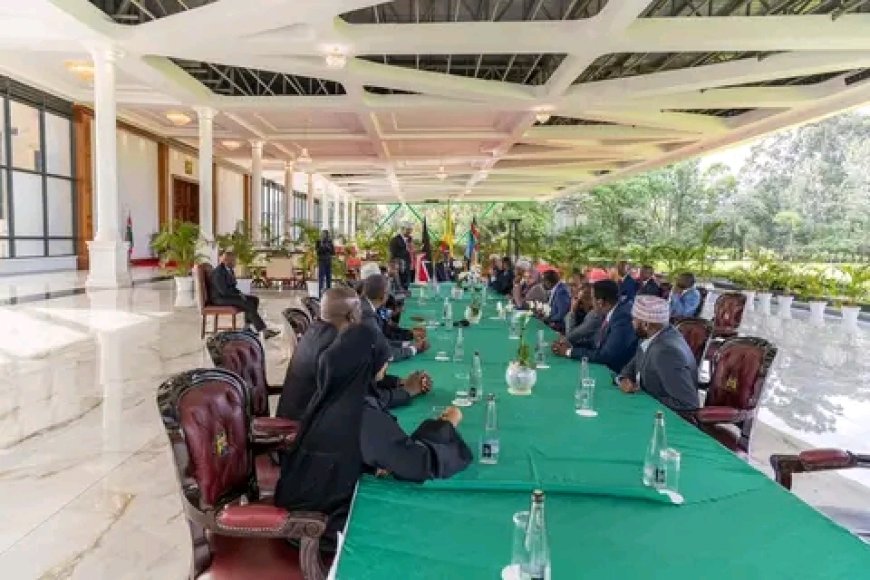Government unveils comprehensive livestock vaccination program for 2025

By Robert Mutasi
President William Ruto announced the launch of a national livestock vaccination program set to commence in January 2025.
The initiative, he said, would fight livestock diseases much more effectively than before, when similar programs were criticized for being small in scope and not efficient.
During a meeting with the leadership of the United Democratic Movement, UDM, party at State House in Nairobi, President Ruto declared that a strong vaccination program improves the health and productivity of Kenya's livestock.
His announcement came in the wake of a broader strategy to boost government investment in the livestock sub-sector, which holds immense potential to make big contributions to the country's economy.
"This is not only a vaccination program for the animals against the endemic diseases but also a new beginning in the way we have approached animal health. We are going to make sure it is implemented in every corner of the country," said President Ruto.
This includes an unprecedented 22 million cattle and 50 million sheep and goats under the ambitious program, which aims to improve breeds and secure the livelihoods of farmers across the country.
Traditionally, vaccination drives in Kenya have focused on selected areas of the country, with uneven outcomes for livestock herders.
Now, the president's directive calls for a nationwide strategy that aims to leave no corner of the country unvaccinated.
"We acknowledge that the previous vaccination efforts were hindered by geographic limitations. Our revised strategy will ensure that no farmer is left behind, whether they reside in urban centers or remote pastoral communities," Ruto explained.
Besides the vaccination program, the meeting between the president and UDM party leaders, such as Mandera Senator Ali Roba and Marsabit Governor Mohamud Mohamud, also discussed the issue of agricultural productivity.
The leaders of the UDM welcomed the initiative since it will uplift the lifestyle of pastoralists and farmers.
Basically, it is the livestock sector, which has been a big role-player in the economy and food security of millions for various time periods, besides being involved in the employment generation mechanisms; the increased focus of government has brought new impetus into this sector.
What's Your Reaction?



































































































































































































































































































